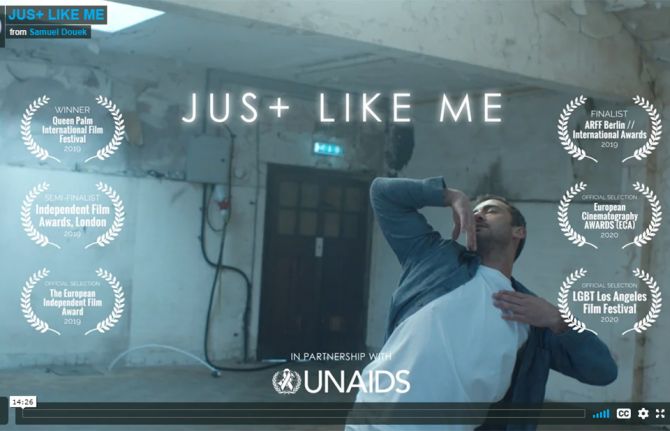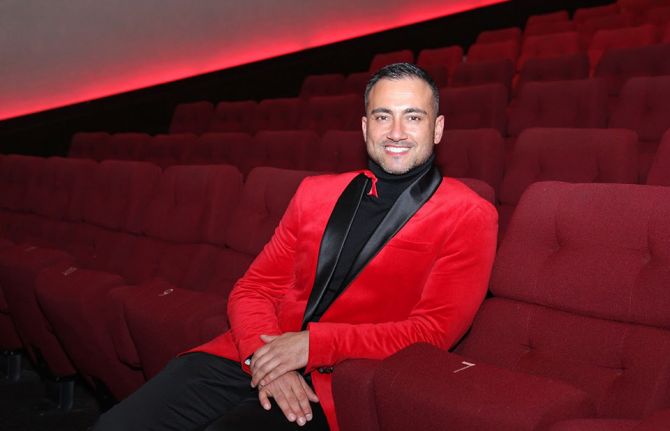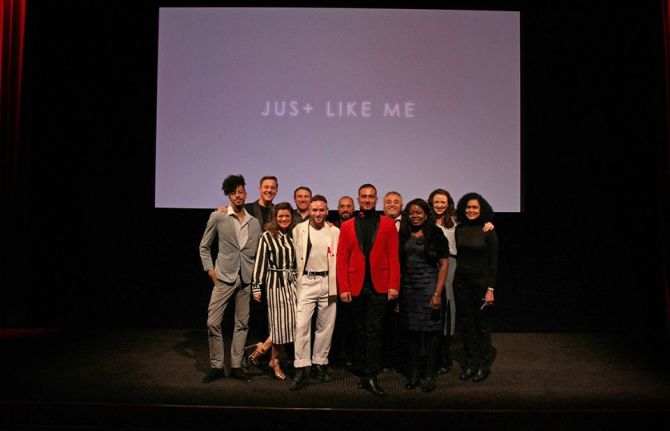



Feature Story
Mr Gay England brings visibility to HIV stigma
06 September 2019
06 September 2019 06 September 2019When Phillip Dzwonkiewicz won the Mr Gay England 2018 contest, he wanted to use his platform to talk about HIV. After years of struggling with his HIV-positive status, he no longer wanted to hide.
“I now live one life,” he said. “I live openly and it’s a massive weight off my shoulders.”
The next year, when competing in Mr Gay Europe 2018―he was runner up―he again used the platform to bring more visibility to HIV. “What still surprises me is how people tell me, “You don’t look like you have HIV”. It shows how misconceptions still exist,” he said.
As a dancer and performer, the Londoner-at-heart jumped at the opportunity to be the subject of a documentary. The film, Jus+ Like Me, features Mr Dzwonkiewicz coming to terms with his HIV status and how it affects his relationships with partners and his family. Since its launch, the film has won the European Cinematography Awards, the Queen Palm International film festival and was a semi-finalist at the London Independent Film Awards and ARFF Berlin International Awards.
“As a South African, I was aware of AIDS, but what struck me is how many people after seeing the film came forward to share their story about living with HIV,” Tom Falck, the Executive Producer of the film, said. He felt that Mr Dzwonkiewicz’s story had a lot of potential because his non-disclosure cost him a relationship; however, he respects the notion that some people choose not to reveal their HIV status. “Phil’s story is so inspirational, authentic and relatable,” he said.
The general response has been very positive, but the producers realized how stigma still exists. “The hate messages on social media gave us 100% validation of what we sought to do,” Mr Falck said. “We cannot take a back seat; it’s important for all of us to fight the injustices and discrimination.”
In the film, Mr Dzwonkiewicz says that he hopes the documentary will help someone “just like me”. He and Mr Falck along with Director Samuel Douek started a campaign, #JUSTLIKEME, to keep the dialogue going and to raise further awareness. They hope it will encourage others to come forward and share their stories.
Mr Dzwonkiewicz explained that he has offered informal advice to friends for years but now is a peer support worker at Positive East, a nongovernmental organization focusing on HIV support services. “I want to do my little bit and help anyone any way I can,” he said. His peer work has opened his eyes to other communities.
“The demographics that I deal with are quite different than my social circle, but the journeys people describe resemble each other,” Mr Dzwonkiewicz said. He strongly believes in peer support and recalled how 56 Dean Street, the largest London sexual health National Health Service clinic, helped him along his entire journey from testing to treatment to understanding U = U (untransmittable = undetectable). Mr Dzwonkiewicz, like people who take antiretroviral therapy daily, can no longer transmit HIV because the virus is now undetectable in his blood.
“By being there with advice, support and counselling, I have gained such a quality of life,” he said, referring to 56 Dean Street.
“HIV doesn’t define me,” he said. “I am like any other person living my life to the fullest.”



